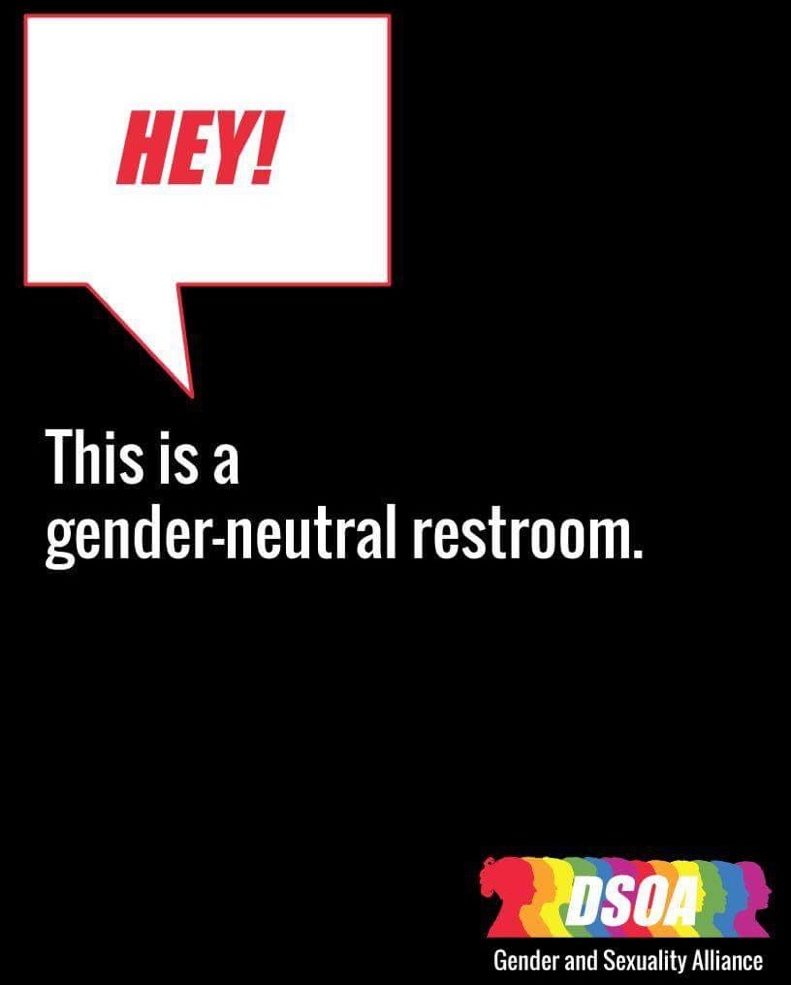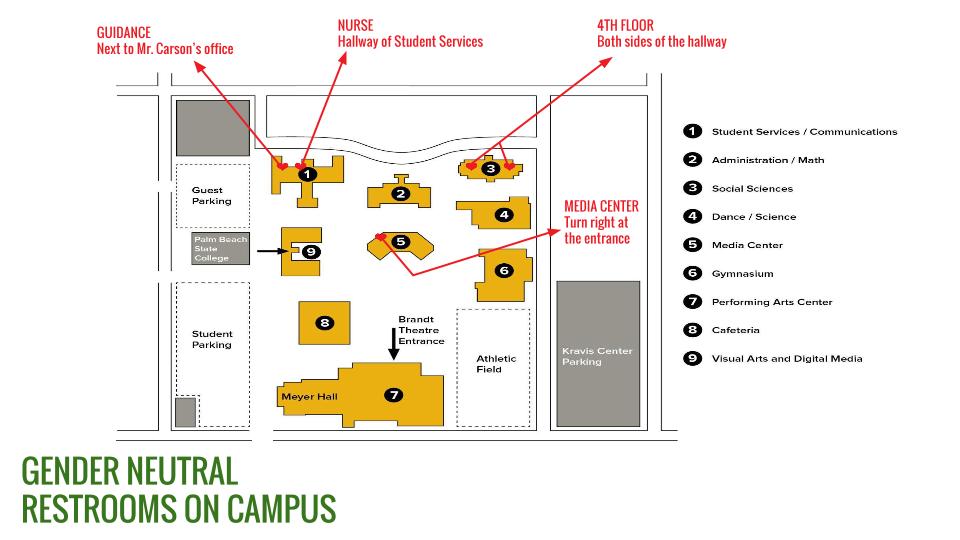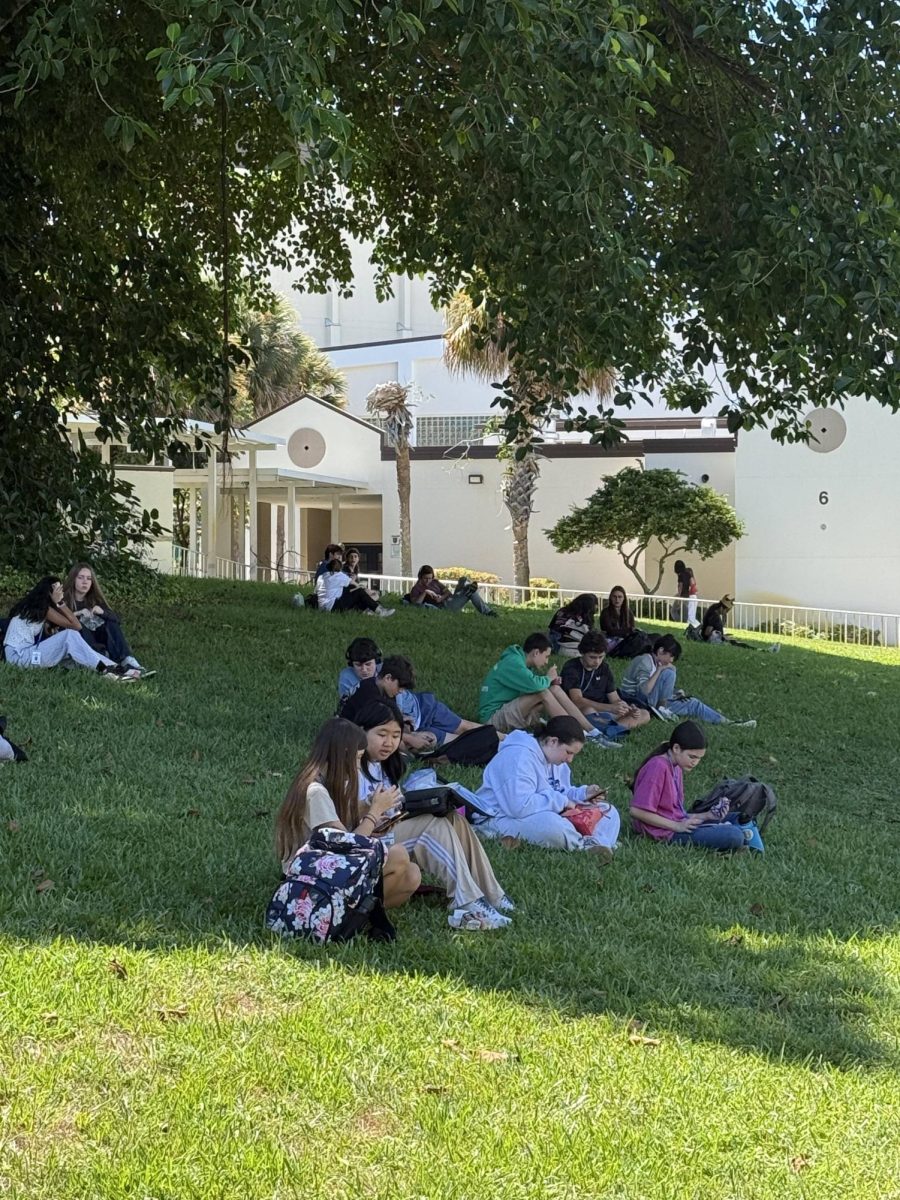
The gender neutral bathrooms were introduce to Dreyfoos this year. These signs signify which restrooms are gender neutral, and the map shows you where you can find them.
This year, Gender and Sexuality Alliance (GSA) helped introduce gender neutral bathrooms to Dreyfoos. This move was intended to provide comfortability to the community of LGBTQ+ (Lesbian, Gay, Bisexual, Transgender, Queer, Plus) students.
“I like [the gender neutral bathrooms],” digital freshman and transgender student Tanner Feingold said. “I think it’s good for kids who are non-binary or genderfluid [people who do not identify with any specific gender] at this school, or for kids who are transgender at this school who don’t feel comfortable using the bathrooms they identify as because they’re scared they are going to get jumped or something.”
Gender neutral bathrooms are bathrooms that anyone can use, regardless of the gender they identify as.
“I feel like cisgendered [people who identify as the gender that corresponds with their biological sex] people look at gender neutral bathrooms as a bad thing, because it’s like, why do we have to accommodate our bathrooms to other people,” Feingold said. “It’s more of an I don’t care attitude about other people, and people thinking why do we need this, and why are you taking away our bathrooms.”
For the LGBTQ+ student community, gender neutral bathrooms are a positive step towards the equality of the sexes. Without these bathrooms, LGBTQ+ students may feel left out, or may become victims of bullying.

The gender neutral bathrooms were introduce to Dreyfoos this year. These signs signify which restrooms are gender neutral, and the map shows you where you can find them.
“[Not having gender neutral bathrooms] can make nonbinary people very uncomfortable, because I know if I was nonbinary, I wouldn’t want to go into the boy’s bathroom,” Feingold said. “I guess for no gender and nonbinary people it makes them feel like they don’t belong in the gendered conformative bathrooms, because they don’t identify with the gender. Using the gender neutral bathroom is normal. It’s just like using any other bathroom.”
A lot more is still being done to improve the awareness of the LGBTQ+ student community at Dreyfoos. The GSA has already begun working on plans to add in gender and sexuality-inclusive curriculums in Dreyfoos’ education.
“We have gender neutral bathrooms, and [GSA] can make sure people use the proper pronouns,” Feingold said. “[We] use they/them pronouns, which some people may find hard to understand, but we can make sure we respect that, and if something [bad] happens [we] tell an administrator.”




















































